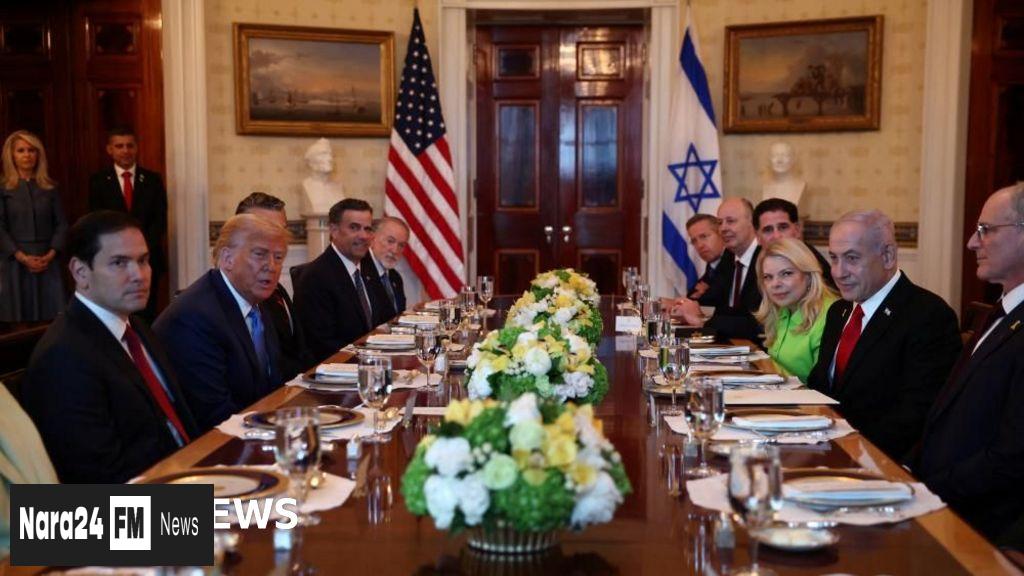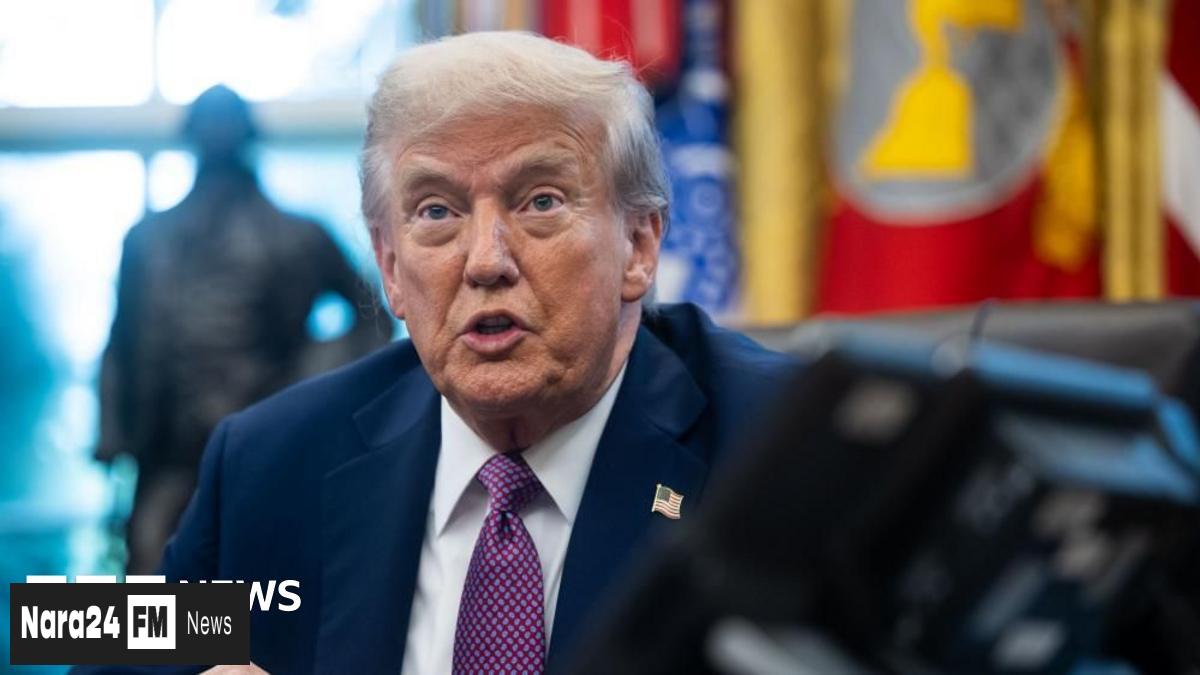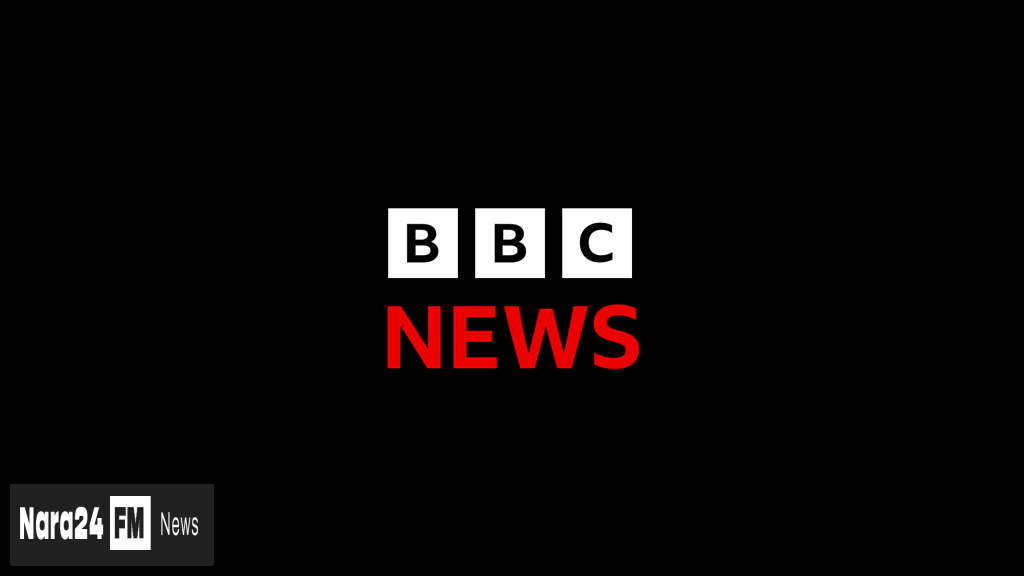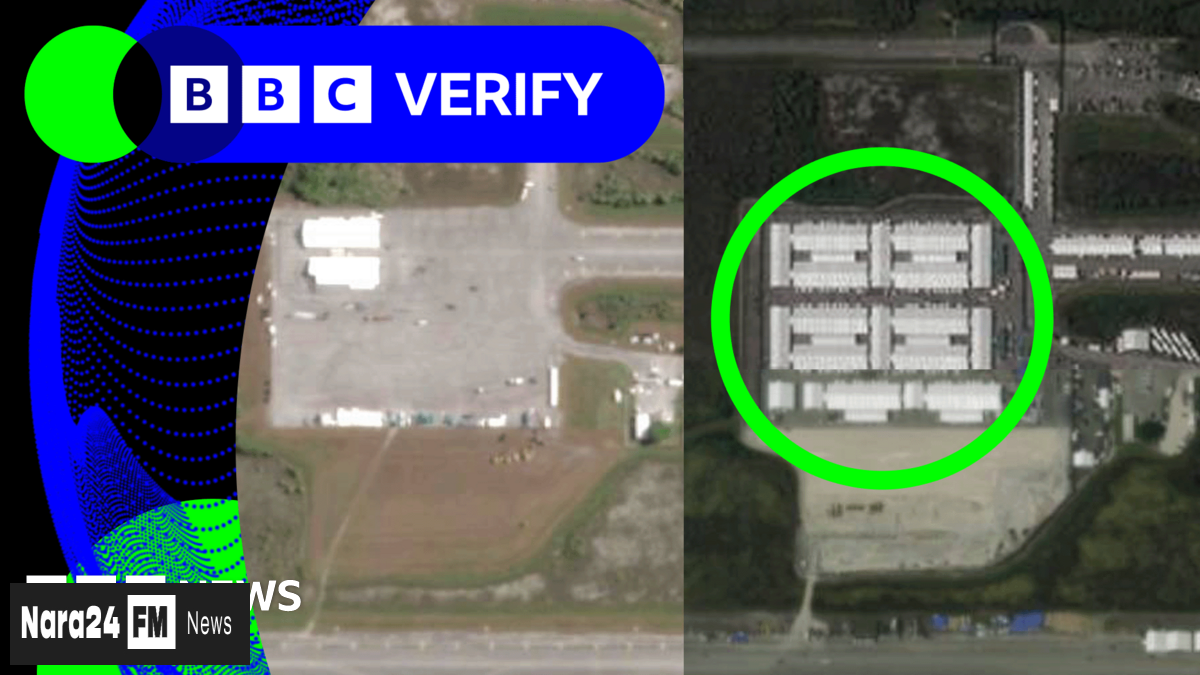In This Article
- Gaza Ceasefire Talks Progress
- Relocation of Palestinians
- Palestinian Statehood and Security Control
- U.S.-backed Ceasefire Proposal
- Protests and ICC Warrant
- Continuing Negotiations and U.S. Optimism
Key Takeaways
- U.S. President Donald Trump expressed optimism about progress in Gaza ceasefire talks during a meeting with Israeli Prime Minister Benjamin Netanyahu in Washington, D.C.
- Netanyahu revealed he nominated Trump for the Nobel Peace Prize, praising his role in fostering regional peace.
- The U.S.-backed ceasefire proposal includes releasing 10 living hostages and 18 deceased hostages by Hamas in exchange for prisoner releases and partial Israeli withdrawal from Gaza.
- Hamas demands the cessation of the Gaza Humanitarian Foundation's operations, a point Israel refuses to negotiate, complicating ceasefire talks.
- Netanyahu downplayed the prospect of full Palestinian statehood, stating Israel will maintain security control over Gaza despite international criticism.
U.S. President Donald Trump expressed optimism about progress in Gaza ceasefire talks during a meeting with Israeli Prime Minister Benjamin Netanyahu in Washington, D.C. on Monday. Trump stated that he believes Hamas is willing to end the 21-month conflict, remarking, "They want to meet and they want to have that ceasefire."
The meeting followed unsuccessful indirect ceasefire negotiations between Israel and Hamas in Qatar, though discussions are expected to continue this week. When asked about potential delays in reaching a peace deal, Trump responded, "I don't think there is a hold-up. I think things are going along very well."
Both leaders also addressed the contentious issue of relocating Palestinians. Trump indicated cooperation from neighboring countries, while Netanyahu emphasized efforts to secure better futures for Palestinians, stating, "If people want to stay, they can stay, but if they want to leave, they should be able to leave." However, the Palestinian presidency has rejected such plans, citing violations of international law.
Netanyahu downplayed the prospect of full Palestinian statehood, asserting that Israel will maintain security control over the Gaza Strip. "Now, people will say it's not a complete state, it's not a state. We don't care," he said. During the meeting, Netanyahu also revealed he had nominated Trump for the Nobel Peace Prize, praising his efforts in fostering regional peace.
The U.S.-backed ceasefire proposal reportedly includes the release of 10 living hostages and 18 deceased hostages by Hamas in exchange for the release of Palestinian prisoners and partial Israeli withdrawal from Gaza. However, significant obstacles remain, particularly regarding humanitarian aid, as Hamas demands the cessation of the Gaza Humanitarian Foundation's operations, a point Israel refuses to negotiate.
Netanyahu’s visit to the White House, his third since Trump’s return to power, comes amid heightened tensions and renewed efforts to end the Gaza conflict. Protesters gathered outside the White House, waving Palestinian flags and calling for Netanyahu’s arrest following an International Criminal Court warrant for alleged war crimes. Netanyahu has dismissed the allegations as antisemitic, and the Trump administration has sanctioned ICC judges in response.
As negotiations continue, U.S. officials remain cautiously optimistic. White House spokeswoman Karoline Leavitt emphasized that ending the war is Trump’s "utmost priority," urging Hamas to agree to the proposed 60-day ceasefire. Meanwhile, U.S. Middle East envoy Steve Witkoff is set to join talks in Doha later this week in hopes of finalizing a deal.








Comments (0)
Leave a Comment
Be the first to comment on this article!